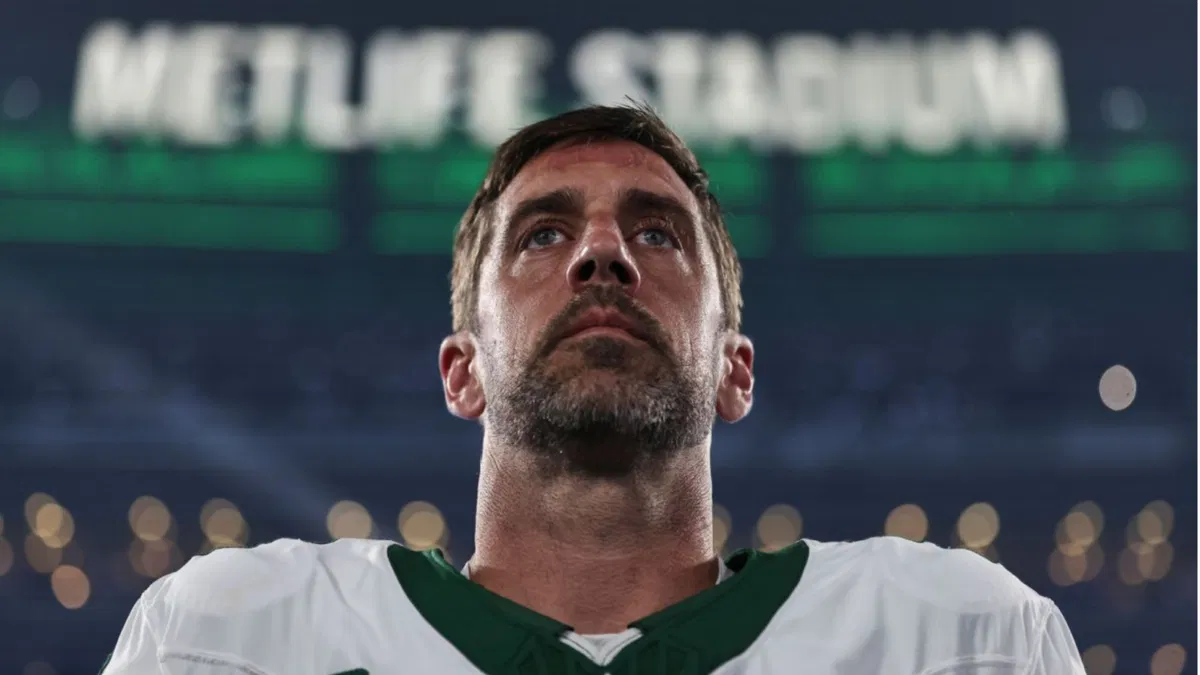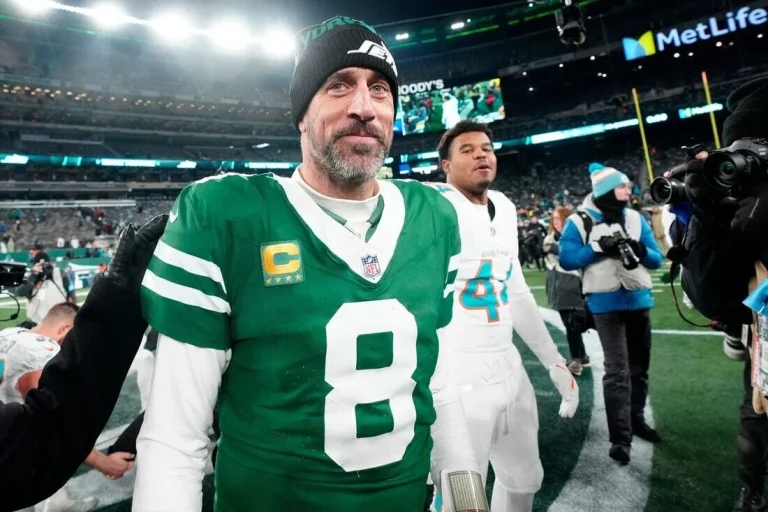Aaron Rodgers made an attempt to stay with the New York Jets following the disappointing end to the 2024 season. According to the New York Post, during a meeting with the Jets’ brass, Rodgers passionately urged the team to keep him for at least one or two more years.
Despite his efforts, the Jets’ leadership ultimately decided to move on, and Rodgers reportedly accepted their decision. Afterward, he retreated from public view for a few days, signaling his quiet acceptance of the outcome.
Jets’ Leadership Shifts Focus to Team Strategy, Moving Away from Rodgers’ Influence
While Rodgers’ desire to remain with the team wasn’t a surprise, the Jets’ new leadership, including head coach Aaron Glenn and general manager Aaron Mougey, appeared determined to go in a different direction.
During their press conference, they were non-committal regarding Rodgers’ future, signaling a shift in focus toward the team’s overall strategy rather than one player. Glenn’s emphasis on a team-first philosophy made it clear that the Jets’ priorities extended beyond keeping the veteran quarterback.

The Jets’ decision to part ways with Rodgers was influenced in part by his age—41 years old—and his less-than-impressive performance during the 2024 season. Despite being one of the greatest quarterbacks in NFL history, Rodgers did not play at his peak level during his time with the Jets.
However, it seems that the larger reason behind the move was philosophical differences between the quarterback and the new Jets leadership. The Jets were likely seeking a player who could bring a more urgent, win-focused mentality to the team.
Rodgers’ Shift in Perspective Conflicts with Jets’ Win-Focused Vision for the Future
Rodgers’ reflections on the 2024 season highlighted a shift in his mindset. He openly stated that his 20 years in the NFL had altered his definition of success, focusing more on the relationships and friendships built throughout the season rather than just wins and losses. While this perspective may resonate with some, it may not align with the Jets’ new regime, who are looking for a quarterback with a laser focus on winning and contributing to the franchise’s immediate success.
As Rodgers’ time with the Jets comes to an end, he now faces an important decision: retire or continue his career elsewhere. The 41-year-old quarterback may choose to play for a third team in four years, and teams across the league are watching closely as they prepare for the upcoming free agency and draft. Whether Rodgers will stay in the NFL or call it a career remains uncertain, but his next move will likely come soon as the Jets move forward without him.

